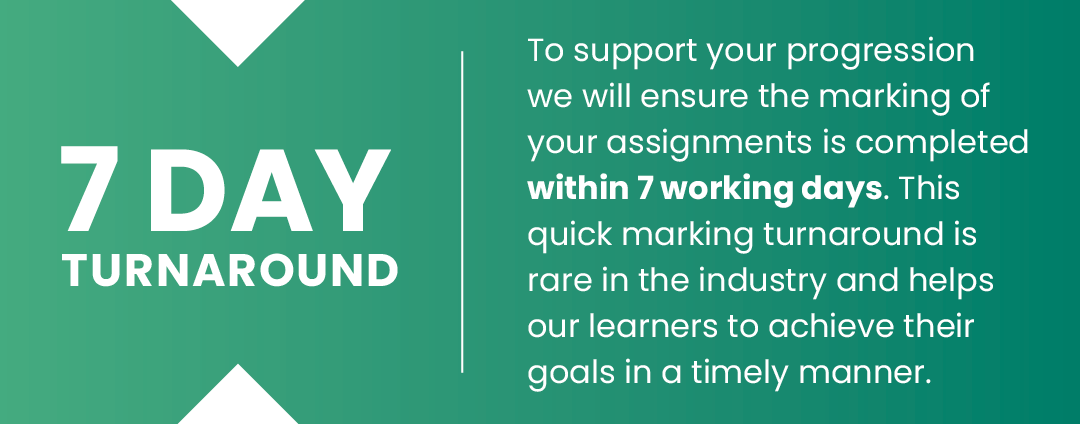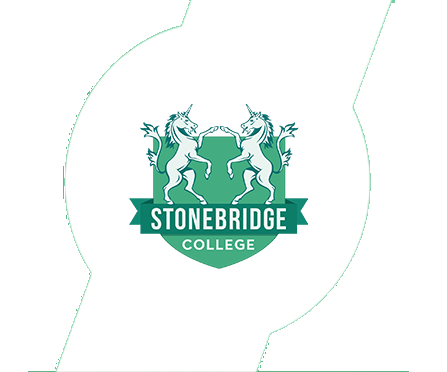Access to Higher Education Diploma (Computing).

Access to Higher Education Diploma (Computing)
This Course at a Glance
- Get the skills to work in tech and AI development
- Start an exciting and innovative career
- Completion possible within a year
- Go to university without A-Levels
- Study from the comfort of home
- No exams
About Your Diploma
In today's competitive business landscape, excellence in digital operations and computational procedures is essential. This necessity arises not only from the increasing threats posed by cybercrime but also from the demand for convenient, user-friendly services in both B2B and B2C contexts. Modern businesses must ensure their offerings are readily accessible at the touch of a button.
For those who are analytical, scientifically inclined, and passionate about computing, there is a lucrative career path waiting in the digital sector. Professionals with expertise in this field are highly sought after, as businesses need skilled individuals to safeguard and enhance their digital operations.
Enrolling in our Access to Higher Education Diploma (Computing) provides the foundational knowledge required to pursue a computer science degree at university. This qualification, equivalent to three A-Levels, equips you with the skills and understanding needed to excel in various advanced roles within leading industries.
Throughout the course, you'll cover a wide range of topics, including pure mathematics, database development, cyber security fundamentals, and web page design. This comprehensive curriculum ensures you gain a thorough understanding of key computer science principles, preparing you to design and utilise technology for effective communication, data storage, and digital data processing.
Getting Started
Stonebridge Associated Colleges is one of the leading UK distance learning providers, and our Access to Higher Education Diplomas will enable you to access degree level study in most universities throughout the UK. This is because they are a Level 3 qualification that is regulated by the Quality Assurance Agency for Higher Education (QAA) and recognised on a national scale.
Once enrolled, you have two years to complete the course, however, the flexibility of online learning allows you to progress at your pace. On average our students are finished within 9-12 months and ready to apply to university. You can also study when and where you like as there are no classes or timetables to stick to.
You will be provided with an Individual Learning Plan that outlines the submission deadlines for your assignments to keep you on track throughout the course.
*Please note, entry requirements differ between each university. It’s always best to check with your chosen institution that your qualification will be accepted before enrolling on a course.
Qualification: Access to Higher Education Diploma (Computing)
On successful completion of the Access to Higher Education Diploma (Computing), (QAA aim code: 40012803), you will receive a Skills & Education Group Access, QAA recognised, Access to Higher Education Diploma at Level 3. As part of your programme, you will also receive help as well as guidance on your university application and the research you need to do to get the most out of your diploma.
Requirements for Entry
Anyone wishing to continue their education with an Access to Higher Education Diploma, it is necessary they have a GCSE Grade A-C in maths and English (or Functional Skills Level 2 or new GCSE Grade 4-9) with a desire to continue a related degree at university. If you do not hold these qualifications then you must be working towards them whilst completing your Access to HE Diploma.
Our Access to Higher Education Diplomas fulfil entry criteria for a broad range of university degrees and can be used in conjunction with the standard UCAS application process. In short, Access to HE Diplomas have a track record of helping learners get to the university and degree of their choice. Learners must bear in mind each university has its own set of admission criteria and places are subject to demand. Varying admission criteria can include but are not limited to the following:
- Number of credits to be attained at merit or distinction level.
- Successfully passing a face-to-face interview at the University.
- Passing a University’s proprietary literacy and numeracy assessments.
- Completion of specified work placements or work experience.
- GCSE Grade A-C (new system 4-9) in maths and English (or equivalent Level 2 such as Functional Skills).
Learners must undertake their own research to ensure their Diploma gives them the best possible chance of gaining entry to their university of choice. It is not possible for Stonebridge Associated Colleges to accept any liability if any Access to Higher Education Diploma student fails to secure an offer from a higher education institution.
Open College Network West Midlands are a national Awarding Organisation, regulated by Ofqual, the Quality Assurance Agency for Higher Education (QAA) and Qualifications Wales, to develop and award nationally recognised qualifications.
Open College Network West Midlands work in partnership with employers, training providers, colleges, universities, schools and voluntary and community organisations to offer vocational credit-based qualifications, Access to Higher Education Diplomas and quality assured Customised Accreditation that enables learners gain employment or to progress into further learning and Higher Education. They also Quality Endorse organisations internal training and skills delivery.
As part of the Awarding Organisation requirements, to receive certification for this training course you must be subscribed for a minimum period of 9 months. The minimum subscription period is measured in total months subscribed, which do not have to be consecutive.
This means that if your personal circumstances change (time available to study, financial pressures etc.), you can cancel/pause your study and payments at any time. If you decide to return to your studies at a later date, you can simply reactivate your subscription and continue from where you left off (we will save all your course progress). Using our subscription service you are not tied into a credit agreement.
To study an Access to HE Diploma you must be resident in the UK and have a UK postcode.
You must hold Level 2 qualifications in both English and Maths, or be working towards them alongside studying your Access to Higher Education Diploma.
University Entry Criteria
It must be reiterated that each university will set its own admission criteria. So, you must check with your desired institution if your Access to HE Diploma and other qualifications will be accepted.
In many cases, to get started on healthcare courses at university, you will need:
- A certain number of credits passed with a merit or a distinction grade
- A face-to-face interview at the university
- Literacy and numeracy assessments provided by the university
- Course-related work placements or work experience
- GCSE Grade C/4 or above in Maths and English (or equivalent Level 2 such as Functional Skills/Key Skills, etc.)
It is your responsibility to check that your Access to HE Diploma will be accepted as part of these entry requirements for your chosen degree. Stonebridge will not be held accountable if completing this Access to Higher Education Diploma doesn’t secure you a position with a higher education institution.
Minimum Age Restriction
This course is ideally suited to those who have completed full-time education but have not achieved the grades required to get into university.
Average Completion Timeframe
The average time it takes our learners to complete the course is 9-12 months.
Assessment Requirements
A range of assessment methodologies are used, including: academic report, essay, case study analysis, illustrated report, journal article, portfolio, academic poster, presentation (video and audio recording), developing promotional activity, series of questions, academic writing skills tasks.
In addition to the qualification units, you will also be required to complete short introductory tasks at the start of your course to support the development of your academic study skills.
Exams Required
There are no exams included in the assessment of the course.
Additional Requirements
Learners must be actively studying for a minimum of six months before results can be ratified and certificates ordered. The six month period does not start until you have completed and passed the course induction and you must be submitting assignments regularly (in line with the deadlines in your Individual Learning Plan) to meet this six month requirement. Certificates can only be issued once your course is paid for in full.
Certification Timeframe
You can expect to receive your certificate 12-16 weeks from your final assignment being marked and graded, depending on the time of year. You will be provided with regular updates throughout the certification process so that you are fully informed of your individual timeframes.
Module 1: Academic Writing Skills
Upon successful completion of this module, you will:
- Be able to structure a written response
- Be able to develop a structured response to a plan
- Be able to present the response appropriately for audience and purpose
- Understand how to apply academic writing principles to own work
Module 2: Reading and Note Making
Upon successful completion of this module, you will:
-
Understand a range of reading strategies
-
Understand the use of language in terms of the purpose and context of a range of texts
-
Be able to use methods for developing notes from a range of sources
Module 3: Use of Information and Communication Technology
Upon successful completion of this module, you will:
-
Be able to use word processing software to create documents
-
Be able to use spreadsheet software packages to manipulate numerical data
-
Be able to use computer presentation software to produce a presentation
-
Know how to combine data from different sources and packages to create a document
Module 4: Components of Computer Systems
Upon successful completion of this module, you will:
- Understand the basic components of a computer system
- Understand the characteristics of data capture devices and the need control of data input
- Understand the characteristics of modern storage methods
- Understand the characteristics of common output devices
- Understand the operation and use of modern data communications methods
Module 5: Algebra and Functions
Upon successful completion of this module, you will:
- Be able to use and understand the rules of indices
- Understand the use of surds
- Be able to solve a problem involving algebraic expressions
- Be able to use function notation and solve a problem involving functions
Module 6: Cyber Security Fundamentals
Upon successful completion of this module, you will:
- Understand cyber security concepts
- Understand current cyber threats and cyber warfare techniques and methods
- Be able to evaluate defence mechanisms against cyber threats
Module 7: Database Development
Upon successful completion of this module, you will:
- Understand the use of database terminology and factors that influence design
- Use a database system to structure and organise data
- Use a database system to manipulate and present information
- Know how to create appropriate user interfaces
- Be able to test and review the database
Module 8: Calculus
Upon successful completion of this module, you will:
- Be able to solve a problem involving coordinate geometry of straight lines
- Be able to perform and apply differentiation on a simple function
- Be able to perform and apply integration
Module 9: AI, Machine Learning and Deep Learning
Upon successful completion of this module, you will:
- Understand the fundamentals of artificial intelligence
- Understand the fundamentals of machine learning
- Understand the fundamentals of deep learning
Module 10: The Safe and Ethical Use of Generative Artificial Intelligence
Upon successful completion of this module, you will:
- Understand the principles of safe and ethical use of generative AI in own subject area
- Be able to evaluate the use of generative AI tools or resources with regard to academic integrity
- Be able to evaluate safe and ethical practices in using generative AI in own subject
Module 11: Software Development
Upon successful completion of this module, you will:
- Understand the key features of a programming language
- Be able to create a computer program to meet the needs of a specific situation
- Understand good practice within the software development process
- Understand the importance of testing within the software development cycle
Module 12: Pure Maths
Upon successful completion of this module, you will:
- Be able to apply logarithms to solve a problem
- Be able to apply trigonometric methods to solve a problem
- Be able to solve a problem involving a series
Module 13: Programming Constructs
Upon successful completion of this module, you will:
- Be able to design both simple and complex single task programs from a specification
- Be able to use both the basic and advanced constructs provided by a high-level programming language appropriately
- Be able to create programs to handle simple data structures
- Be able to test and correct complex single function programs
Module 14: Further Differentiation
Upon successful completion of this module, you will:
- Be able to perform and apply differentiation on a simple function
- Be able to perform and apply differentiation on a complicated function
Module 15: Web Page Design and Production
Upon successful completion of this module, you will:
- Understand the basic constituent elements of a Web Page
- Understand the basic language code used in web page production
- Understand how to design and produce a web page
- Understand how to make a web page ‘live’ on the internet
Module 16: Further Trigonometry
Upon successful completion of this module, you will:
- Be able to solve a problem involving arc length and sector area
- Be able to use simple trigonometric identities to solve problems
- Be able to use complex trigonometric identities to solve problems
In addition to the qualification units, you will also be required to complete a course induction which comprises of three short introductory tasks to support the development of your academic study skills.

This qualification is made up of a range of units, with an assignment at the end of each one. You will submit your work to your tutor for marking and tailored feedback and you need to acquire 60 credits in total in order to achieve the Access to HE Diploma (Computing). Of these credits, 45 will be taken from graded units that focus on the academic subject areas included in the course. The remaining 15 come from ungraded units included to help you to improve your academic writing and study skills.
In addition to the qualification units, you will also be required to complete short introductory tasks at the start of your course to support the development of your academic study skills.
As part of your programme, you will also receive help and guidance on your university application and the research you need to do to get the most out of your diploma.
VALUE
Annual
- 100% Online
- Full Tutor Support
- No Credit Checks or Credit Agreement
Monthly
- 100% Online
- Full Tutor Support
- No Credit Checks or Credit Agreement
Free 7-Day Trial
Register for a 7-day FREE trial (your payment details will be taken at checkout but not charged). Once the trial period ends you will be charged the monthly fee unless you cancel. Cancel Anytime. No Commitment.- 100% Online
- Full Tutor Support
- No Credit Checks or Credit Agreement
This Course at a Glance
- Get the skills to work in tech and AI development
- Start an exciting and innovative career
- Completion possible within a year
- Go to university without A-Levels
- Study from the comfort of home
- No exams
About Your Diploma
In today's competitive business landscape, excellence in digital operations and computational procedures is essential. This necessity arises not only from the increasing threats posed by cybercrime but also from the demand for convenient, user-friendly services in both B2B and B2C contexts. Modern businesses must ensure their offerings are readily accessible at the touch of a button.
For those who are analytical, scientifically inclined, and passionate about computing, there is a lucrative career path waiting in the digital sector. Professionals with expertise in this field are highly sought after, as businesses need skilled individuals to safeguard and enhance their digital operations.
Enrolling in our Access to Higher Education Diploma (Computing) provides the foundational knowledge required to pursue a computer science degree at university. This qualification, equivalent to three A-Levels, equips you with the skills and understanding needed to excel in various advanced roles within leading industries.
Throughout the course, you'll cover a wide range of topics, including pure mathematics, database development, cyber security fundamentals, and web page design. This comprehensive curriculum ensures you gain a thorough understanding of key computer science principles, preparing you to design and utilise technology for effective communication, data storage, and digital data processing.
Getting Started
Stonebridge Associated Colleges is one of the leading UK distance learning providers, and our Access to Higher Education Diplomas will enable you to access degree level study in most universities throughout the UK. This is because they are a Level 3 qualification that is regulated by the Quality Assurance Agency for Higher Education (QAA) and recognised on a national scale.
Once enrolled, you have two years to complete the course, however, the flexibility of online learning allows you to progress at your pace. On average our students are finished within 9-12 months and ready to apply to university. You can also study when and where you like as there are no classes or timetables to stick to.
You will be provided with an Individual Learning Plan that outlines the submission deadlines for your assignments to keep you on track throughout the course.
*Please note, entry requirements differ between each university. It’s always best to check with your chosen institution that your qualification will be accepted before enrolling on a course.
Qualification: Access to Higher Education Diploma (Computing)
On successful completion of the Access to Higher Education Diploma (Computing), (QAA aim code: 40012803), you will receive a Skills & Education Group Access, QAA recognised, Access to Higher Education Diploma at Level 3. As part of your programme, you will also receive help as well as guidance on your university application and the research you need to do to get the most out of your diploma.
Requirements for Entry
Anyone wishing to continue their education with an Access to Higher Education Diploma, it is necessary they have a GCSE Grade A-C in maths and English (or Functional Skills Level 2 or new GCSE Grade 4-9) with a desire to continue a related degree at university. If you do not hold these qualifications then you must be working towards them whilst completing your Access to HE Diploma.
Our Access to Higher Education Diplomas fulfil entry criteria for a broad range of university degrees and can be used in conjunction with the standard UCAS application process. In short, Access to HE Diplomas have a track record of helping learners get to the university and degree of their choice. Learners must bear in mind each university has its own set of admission criteria and places are subject to demand. Varying admission criteria can include but are not limited to the following:
- Number of credits to be attained at merit or distinction level.
- Successfully passing a face-to-face interview at the University.
- Passing a University’s proprietary literacy and numeracy assessments.
- Completion of specified work placements or work experience.
- GCSE Grade A-C (new system 4-9) in maths and English (or equivalent Level 2 such as Functional Skills).
Learners must undertake their own research to ensure their Diploma gives them the best possible chance of gaining entry to their university of choice. It is not possible for Stonebridge Associated Colleges to accept any liability if any Access to Higher Education Diploma student fails to secure an offer from a higher education institution.
Open College Network West Midlands are a national Awarding Organisation, regulated by Ofqual, the Quality Assurance Agency for Higher Education (QAA) and Qualifications Wales, to develop and award nationally recognised qualifications.
Open College Network West Midlands work in partnership with employers, training providers, colleges, universities, schools and voluntary and community organisations to offer vocational credit-based qualifications, Access to Higher Education Diplomas and quality assured Customised Accreditation that enables learners gain employment or to progress into further learning and Higher Education. They also Quality Endorse organisations internal training and skills delivery.
Module 1: Academic Writing Skills
Upon successful completion of this module, you will:
- Be able to structure a written response
- Be able to develop a structured response to a plan
- Be able to present the response appropriately for audience and purpose
- Understand how to apply academic writing principles to own work
Module 2: Reading and Note Making
Upon successful completion of this module, you will:
-
Understand a range of reading strategies
-
Understand the use of language in terms of the purpose and context of a range of texts
-
Be able to use methods for developing notes from a range of sources
Module 3: Use of Information and Communication Technology
Upon successful completion of this module, you will:
-
Be able to use word processing software to create documents
-
Be able to use spreadsheet software packages to manipulate numerical data
-
Be able to use computer presentation software to produce a presentation
-
Know how to combine data from different sources and packages to create a document
Module 4: Components of Computer Systems
Upon successful completion of this module, you will:
- Understand the basic components of a computer system
- Understand the characteristics of data capture devices and the need control of data input
- Understand the characteristics of modern storage methods
- Understand the characteristics of common output devices
- Understand the operation and use of modern data communications methods
Module 5: Algebra and Functions
Upon successful completion of this module, you will:
- Be able to use and understand the rules of indices
- Understand the use of surds
- Be able to solve a problem involving algebraic expressions
- Be able to use function notation and solve a problem involving functions
Module 6: Cyber Security Fundamentals
Upon successful completion of this module, you will:
- Understand cyber security concepts
- Understand current cyber threats and cyber warfare techniques and methods
- Be able to evaluate defence mechanisms against cyber threats
Module 7: Database Development
Upon successful completion of this module, you will:
- Understand the use of database terminology and factors that influence design
- Use a database system to structure and organise data
- Use a database system to manipulate and present information
- Know how to create appropriate user interfaces
- Be able to test and review the database
Module 8: Calculus
Upon successful completion of this module, you will:
- Be able to solve a problem involving coordinate geometry of straight lines
- Be able to perform and apply differentiation on a simple function
- Be able to perform and apply integration
Module 9: AI, Machine Learning and Deep Learning
Upon successful completion of this module, you will:
- Understand the fundamentals of artificial intelligence
- Understand the fundamentals of machine learning
- Understand the fundamentals of deep learning
Module 10: The Safe and Ethical Use of Generative Artificial Intelligence
Upon successful completion of this module, you will:
- Understand the principles of safe and ethical use of generative AI in own subject area
- Be able to evaluate the use of generative AI tools or resources with regard to academic integrity
- Be able to evaluate safe and ethical practices in using generative AI in own subject
Module 11: Software Development
Upon successful completion of this module, you will:
- Understand the key features of a programming language
- Be able to create a computer program to meet the needs of a specific situation
- Understand good practice within the software development process
- Understand the importance of testing within the software development cycle
Module 12: Pure Maths
Upon successful completion of this module, you will:
- Be able to apply logarithms to solve a problem
- Be able to apply trigonometric methods to solve a problem
- Be able to solve a problem involving a series
Module 13: Programming Constructs
Upon successful completion of this module, you will:
- Be able to design both simple and complex single task programs from a specification
- Be able to use both the basic and advanced constructs provided by a high-level programming language appropriately
- Be able to create programs to handle simple data structures
- Be able to test and correct complex single function programs
Module 14: Further Differentiation
Upon successful completion of this module, you will:
- Be able to perform and apply differentiation on a simple function
- Be able to perform and apply differentiation on a complicated function
Module 15: Web Page Design and Production
Upon successful completion of this module, you will:
- Understand the basic constituent elements of a Web Page
- Understand the basic language code used in web page production
- Understand how to design and produce a web page
- Understand how to make a web page ‘live’ on the internet
Module 16: Further Trigonometry
Upon successful completion of this module, you will:
- Be able to solve a problem involving arc length and sector area
- Be able to use simple trigonometric identities to solve problems
- Be able to use complex trigonometric identities to solve problems
In addition to the qualification units, you will also be required to complete a course induction which comprises of three short introductory tasks to support the development of your academic study skills.

This qualification is made up of a range of units, with an assignment at the end of each one. You will submit your work to your tutor for marking and tailored feedback and you need to acquire 60 credits in total in order to achieve the Access to HE Diploma (Computing). Of these credits, 45 will be taken from graded units that focus on the academic subject areas included in the course. The remaining 15 come from ungraded units included to help you to improve your academic writing and study skills.
In addition to the qualification units, you will also be required to complete short introductory tasks at the start of your course to support the development of your academic study skills.
As part of your programme, you will also receive help and guidance on your university application and the research you need to do to get the most out of your diploma.
Our Advisors.
Our team of course advisors are keen to help.
Call us now on 0121 392 8288
Alternatively, please complete the form below and we’ll get back to you as soon as possible.
Our student support team is here for you.












